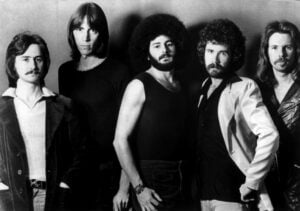The Lyrical Influence Of ‘Fortunate Son’ By Creedence Clearwater Revival
In the late 1960s, as the United States grappled with its prolonged involvement in the Vietnam War, a growing number of citizens questioned the purpose behind sending troops to a distant corner of Southeast Asia. Many young people, disillusioned with the conflict, turned to music as a powerful medium to articulate their opposition. Among the bands that effectively captured this sentiment was Creedence Clearwater Revival. While the group produced several songs addressing the anti-war movement, “Fortunate Son” emerged as one of the most emblematic anthems of the era.
Released in 1968 as part of the fourth album, Willy and the Poor Boys, the song reflects the perspective of a young American who could be drafted to fight in Vietnam at any moment. It also critiques those who, due to their privileged social status, could evade such a fate. The lyrics explicitly express the protagonist’s regret for not having the advantages of being the son of a millionaire, a military officer, or a senator to avoid conscription.
Despite its release over four decades ago, “Fortunate Son” remains a controversial piece. In a 2014 Veterans Day concert, Dave Grohl and Bruce Springsteen performed a cover of the song, sparking a televised debate about its meaning.
Setting the Record Straight
John Fogerty, a military veteran, and the song’s creator, addressed the controversy by stating:
“‘Fortunate Son’ is a song I wrote during the Vietnam War over forty-five years ago. As an American and a songwriter, I am proud that the song still has resonance.”
Fogerty emphasized that the song’s core message is often misinterpreted and co-opted by various factions, asserting that the essence lies in appreciating the freedom to perform such a critical piece in a diverse setting like the Concert for Valor.
With the lyrics proclaiming, “It ain’t me, I ain’t no senator’s son, I ain’t no fortunate one,” Creedence Clearwater Revival used “Fortunate Son” to not only express their opposition to the war but also to criticize the social structure of America, unveiling the hypocrisy concealed within the government’s foreign policy during that era.













